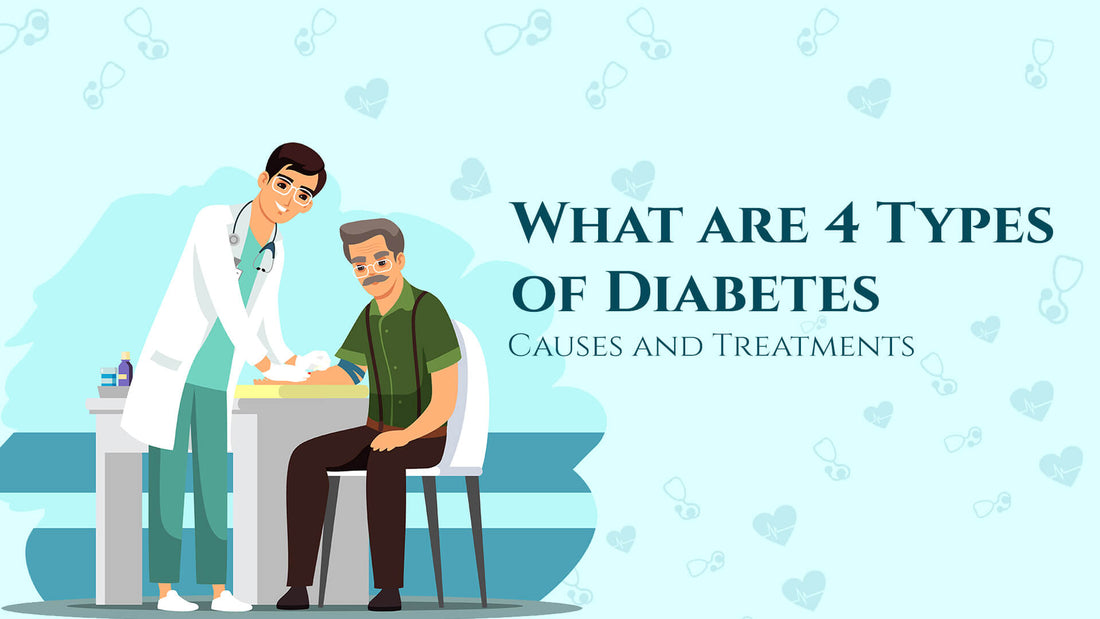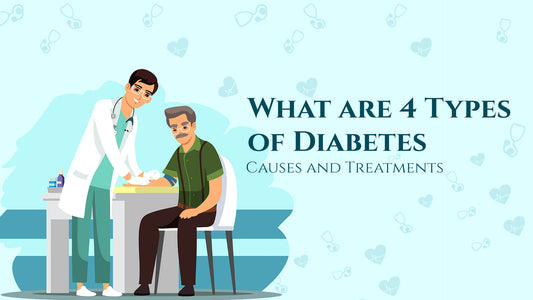Diabetes is a condition that develops when the blood sugar jumps too high from average. Regardless of the age, Diabetes can affect anyone. You consume sugar (glucose) from carbohydrates in your food and beverages. Glucose enters into your body cells from blood to provide energy.
However, glucose needs a transporter, insulin(hormone), to reach its ultimate target. If the pancreas isn't creating enough insulin or your body is not using it well, glucose builds in your bloodstream, causing high blood sugar, known as hyperglycemia.
One of the most widespread diseases is Diabetes, and India is among the hotspots of this metabolic illness. Around 101 million people are living with Diabetes in India, and 136 million are probably living with prediabetes—type 2 diabetes is the most common one. It's a chronic disease but can be controlled with lifestyle changes and medication.
Therefore, it is essential to know the ins and outs of Diabetes and manage it to refine your way of living. So let's find out the 4 types of Diabetes, its causes of Diabetes mellitus, and treatments.
What are the 4 types of Diabetes?
There are various types of Diabetes, but here are standard 4 types that impact most of the population.
Type 1 diabetes
Type 1 is an autoimmune disease, and around 5-10% of the world's population suffers from type 1 diabetes. Mostly, it is spotted in children and young adults. Nevertheless, it can expand across the lifespan.
Causes of Type 1 diabetes
In Type 1 diabetes, the immune system or T cells attack and crush the insulin-producing cells in your pancreas. By this means, the pancreas's ability to make insulin fades. However, the cause of the immune system is unknown—it can be due to genetic and environmental. It's irreversible damage the patient has to live with.
Symptoms
Symptoms of T1D occur in a few weeks; some of the prominent symptoms are;
- Fatigue
- Extreme hunger feeling
- Very thirst
- Blurry vision
- Random Weight Loss
- Excessive urination
Later in diabetes complications (diabetic ketoacidosis), T1D can trigger stomach pain, fruity-smelling breath, vomiting, and rapid breathing.
Type 1 diabetes treatment
The primary treatment provided to type 1 diabetic patients is injecting insulin into the body as the pancreas injury is permanent. Your healthcare provider guides you on how to inject insulin into the body. Moreover, checking sugar with blood glucose monitors around the clock is essential. Sometimes, to avoid complications, you may need to take medication.
Type 2 diabetes
Around 90%-95% of the population suffers from type 2 diabetes as its most common type of Diabetes. In general, it is most common in adults, but children can be affected by T2D.
Cause of type 2 diabetes
In Type 2 diabetes, your body shows insulin resistance. Thereby, your body cannot use insulin properly, sparking your pancreas to make more at first. Still, it reduces insulin production, building high glucose levels in the bloodstream after a while. Generally, the risk factors are genetics, obesity, and inactive lifestyle. Moreover, other health factors can be reasons to induce T2D.
Symptoms
Unlike type 1 diabetes, T2D doesn't show symptoms at the beginning. You gradually experience symptoms that include;
- Thirsty feeling
- Frequent urination
- Dry mouth
- Severe fatigue
- Numbness or pain in the feet and hand
- Regular infection
- Cuts heal slowly
- Blurry vision
- Irritability or other mood changes
Treatment of type 2 diabetes
There is no ultimate cure to get your body out of type 2 diabetes. However, you can manage it to improve your well-being and reduce the risk of further complications. Your doctor may advise to;
- Take insulin therapy
- Oral medications
- Modify lifestyle habits such as eating healthy food, avoiding long-time inactivity, and doing at least 150 minutes of physical activity weekly.
Try Ayush 82 for Diabetes Type 1 & 2 Management
Gestational Diabetes
One in ten pregnancies is connected with Diabetes, and among them, 90% are gestational diabetes mellitus. The frequency of GDM in India is 10-14.3% more than the Western countries. Women with no diabetes earlier can develop gestational Diabetes during pregnancy.
Causes of Gestational diabetes mellitus
In contrast to other types of Diabetes, Gestational diabetes mellitus is caused by hormones, not the reduction of insulin. The hormone created by the placenta inhibits the body from using insulin effectively—a condition termed insulin resistance. Additionally, it develops near the 24th week of pregnancy.
Symptoms
Several women with gestational Diabetes are unlikely to experience any symptoms. The healthcare professional learns about gestational Diabetes by examining the medical history and risk factors. It includes previous history of gestational Diabetes, obesity, polycystic ovary syndrome (PCOS), and type 2 diabetes in family history.
Gestational Diabetes Treatment
Usually, for gestational Diabetes, lifestyle changes are advised by a professional;
- Eat healthy food
- Be active
- Check your blood glucose regularly
- Inspect the health of the baby
- Insulin therapy
- Metformin or other medication
Try Dr. Madhu Amrit for Blood Sugar Control
Type 3c diabetes
About 5%-10% of people are living with the type 3c Diabetes. In this type of Diabetes, your pancreas might stop making an enzyme that helps to digest food.
Causes of Type 3c Diabetes
Type 3c is caused by an illness or condition that damages your pancreas—and it stops making enough insulin that is needed for the body. Actually, this type of Diabetes is often misdiagnosed with type 2 diabetes; however, it's different from it.
Symptoms
Type 3c diabetes, a damaged pancreas, also impacts food digestion. It is called pancreatic exocrine insufficiency (PEI) when your pancreas isn't working well. You may experience the following symptoms of this type.
- Feeling drained out of the ordinary
- Loose weight
- Diarrhea
- Fatty or oily stools
- Low blood sugar
- Passing wind often
- Stomach pain
Type 3c Diabetes Treatment
The foremost treatment for type 3c is metformin to control blood sugar levels. If this doesn't work for you, you'll switch to insulin. Meanwhile, lifestyle changes and a healthy diet for diabetic patients are also advised to digest food and control this type 3c.
Try Ayur Dia 45 Pack for Diabetes Management
Conclusion
Now you understand and know the 4 types of Diabetes, its causes, and treatment to manage this disease effectively. Diabetes has no cure, but it can be manageable to improve the way of living and avoid further complications. If you find the symptoms, then consult your doctor for potential diabetic risk to manage your blood sugar firsthand.






